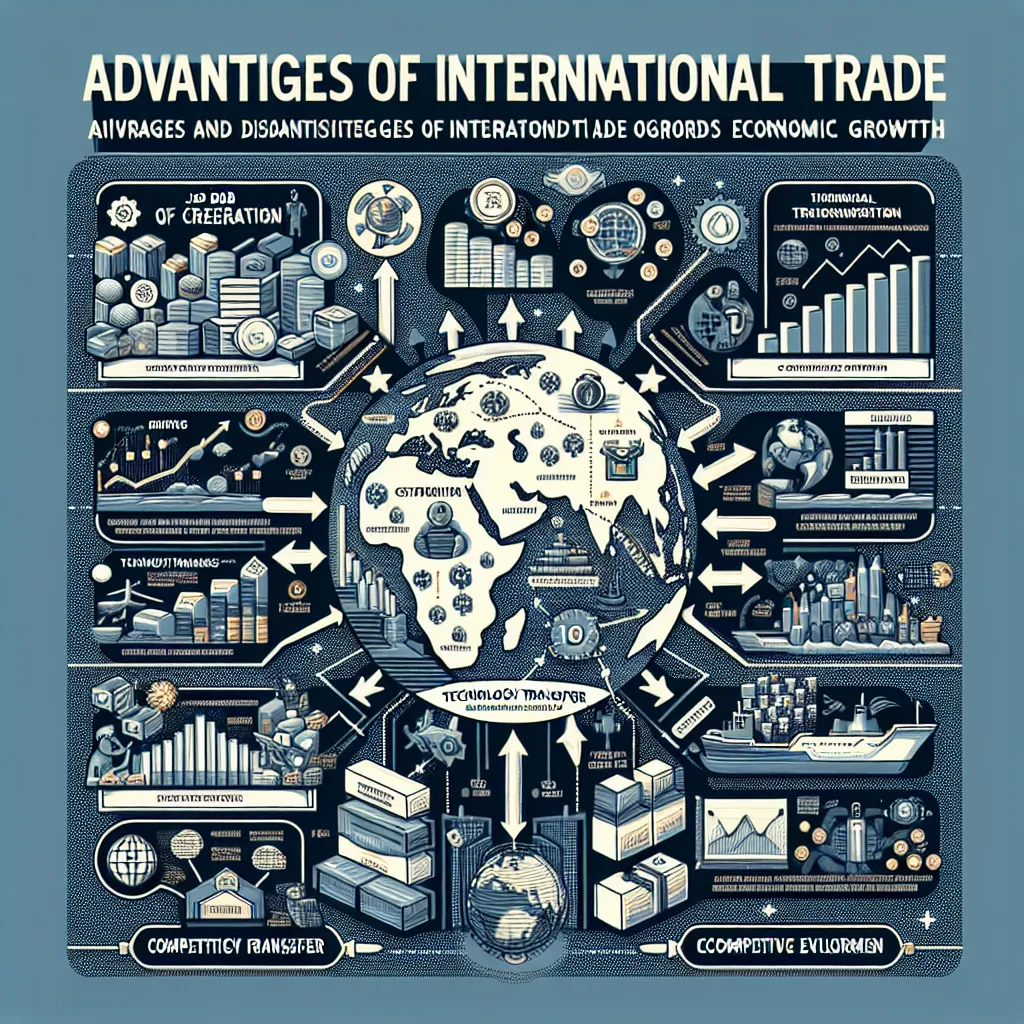International trade plays a pivotal role in shaping the economic landscape of nations worldwide. As a frequent topic in IELTS Writing Task 2, understanding its impact on economic development is crucial for test-takers aiming to achieve high band scores. This article will provide a detailed analysis of the subject, along with sample essays to help you prepare effectively for your IELTS exam.
Nội dung bài viết
Analyzing the Topic and Its Relevance in IELTS
The role of international trade in economic development has been a recurring theme in IELTS Writing Task 2, appearing in various forms over the years. Its frequency can be attributed to its global significance and the diverse perspectives it offers for discussion. Based on past exam trends and current global economic discussions, we can expect this topic to remain relevant in future IELTS tests.
Here are some example questions that have appeared or are likely to appear in IELTS Writing Task 2:
-
Some people believe that international trade is essential for a country’s economic growth, while others argue it can lead to economic dependence. Discuss both views and give your opinion.
-
To what extent do you agree or disagree that developing countries should prioritize international trade over domestic economic policies?
-
The gap between rich and poor countries is widening due to international trade. Do you agree or disagree?
For this guide, we’ll focus on the first question, as it provides a balanced approach to discussing the topic.
Analyzing the Question
 International Trade and Economic Development
International Trade and Economic Development
Some people believe that international trade is essential for a country’s economic growth, while others argue it can lead to economic dependence. Discuss both views and give your opinion.
This question requires you to:
- Discuss the positive view: International trade is essential for economic growth.
- Discuss the negative view: International trade can lead to economic dependence.
- Present your own opinion on the matter.
Key points to consider:
- Economic growth indicators
- Benefits of international trade
- Risks of economic dependence
- Balance between international trade and domestic economic policies
Sample Essay 1 (Band 8-9)
International trade has long been a cornerstone of global economic development, yet its impact on individual nations remains a subject of debate. While some argue that it is indispensable for economic growth, others contend that it may lead to economic dependence. This essay will examine both perspectives before presenting my own viewpoint on this complex issue.
Proponents of international trade emphasize its crucial role in driving economic growth. They argue that access to global markets allows countries to specialize in producing goods and services where they have a comparative advantage, leading to increased efficiency and productivity. For instance, Japan’s expertise in electronics and Germany’s prowess in automotive engineering have propelled their economies forward through exports. Moreover, international trade facilitates the transfer of technology and knowledge, spurring innovation and enhancing competitiveness. Countries like South Korea and Singapore have leveraged this aspect of trade to transform from developing economies into global technological leaders.
On the other hand, critics argue that over-reliance on international trade can lead to economic vulnerability and dependence. They point out that countries heavily dependent on exports may suffer significant economic setbacks during global downturns or trade disputes. The 2008 financial crisis, for example, severely impacted export-oriented economies in Southeast Asia. Furthermore, developing countries may find themselves trapped in low-value-added industries, unable to compete with more advanced economies in high-tech sectors. This scenario can perpetuate economic inequality between nations and hinder long-term development prospects.
In my opinion, while the risks of economic dependence are valid concerns, the benefits of international trade outweigh the potential drawbacks when managed judiciously. The key lies in striking a balance between international engagement and domestic economic resilience. Countries should diversify their economies and invest in education and infrastructure to build a robust foundation for sustainable growth. Additionally, participating in regional trade agreements and international organizations can help mitigate risks and ensure fairer trade practices.
In conclusion, international trade remains an essential driver of economic growth in our interconnected world. However, nations must approach it strategically, complementing trade policies with strong domestic measures to maximize benefits while minimizing vulnerabilities. By doing so, countries can harness the power of global markets to fuel their economic development while maintaining economic sovereignty.
(Word count: 365)
Sample Essay 2 (Band 6-7)
International trade is a big topic in today’s global economy. Some people think it’s very important for countries to grow economically, but others worry it can make countries too dependent on each other. This essay will look at both sides and share my thoughts.
First, international trade can really help countries grow. When countries trade, they can sell what they’re good at making to other countries. This helps them make more money and create jobs. For example, China has grown a lot by selling many products to other countries. Also, when countries trade, they can get new ideas and technology from each other. This helps them improve their own industries and become more modern.
However, there are also problems with relying too much on international trade. Some countries might depend too much on selling to other countries. If something goes wrong, like a global economic crisis, these countries can suffer a lot. For instance, many countries that sold oil had problems when oil prices went down. Another issue is that some countries might always be stuck making cheap things while other countries make more expensive, high-tech products. This can make it hard for poorer countries to catch up.
In my opinion, international trade is generally good for countries, but they need to be careful. I think countries should trade with others but also work on making their own economies strong. They should try to make different kinds of products and not just rely on one thing. Also, countries should invest in education so their people can do more skilled jobs in the future.
To conclude, international trade can help countries grow, but it’s important to balance it with strong local economies. Countries need to be smart about how they trade to get the most benefits and avoid becoming too dependent on others.
(Word count: 298)
Key Writing Tips for This Topic
-
Vocabulary: Use a range of vocabulary related to economics and trade. For higher band scores, incorporate more sophisticated terms.
- Band 6-7: trade, economy, jobs, sell products, economic crisis
- Band 8-9: economic growth, comparative advantage, productivity, export-oriented economies, economic sovereignty
-
Grammar: Employ a variety of sentence structures and tenses.
- Band 6-7: Use simple and compound sentences with basic tenses.
- Band 8-9: Incorporate complex sentences, passive voice, and conditional structures.
-
Coherence and Cohesion: Ensure your essay flows logically.
- Band 6-7: Use basic linking words (First, However, Also).
- Band 8-9: Use more sophisticated connectors (Moreover, Furthermore, In conclusion).
-
Task Response: Address all parts of the question comprehensively.
- Band 6-7: Cover both views and give an opinion, but with less depth.
- Band 8-9: Provide in-depth analysis of both perspectives and a well-reasoned personal opinion.
-
Examples: Use relevant examples to support your arguments.
- Band 6-7: Use general examples (e.g., “China has grown a lot”).
- Band 8-9: Provide specific, well-elaborated examples (e.g., “Japan’s expertise in electronics”).
Key Vocabulary to Remember
-
Economic growth (noun) /ˌiːkəˈnɒmɪk ɡrəʊθ/: An increase in the amount of goods and services produced per head of the population over a period of time.
-
Comparative advantage (noun) /kəmˈpærətɪv ədˈvɑːntɪdʒ/: The ability of an individual or group to carry out a particular economic activity more efficiently than another activity.
-
Globalization (noun) /ˌɡləʊbəlaɪˈzeɪʃən/: The process by which businesses or other organizations develop international influence or start operating on an international scale.
-
Trade deficit (noun) /treɪd ˈdefɪsɪt/: The amount by which the cost of a country’s imports exceeds the value of its exports.
-
Protectionism (noun) /prəˈtekʃənɪzəm/: The theory or practice of shielding a country’s domestic industries from foreign competition by taxing imports.
-
Economic diversification (noun) /ˌiːkəˈnɒmɪk daɪˌvɜːsɪfɪˈkeɪʃən/: The process of a country widening the range of industries or products in its economy.
-
Trade liberalization (noun) /treɪd ˌlɪbərəlaɪˈzeɪʃən/: The removal or reduction of restrictions or barriers on the free exchange of goods between nations.
-
Export-oriented (adjective) /ˈekspɔːt ˈɔːrɪəntɪd/: Focused on producing goods and services for export to other countries.
-
Economic sovereignty (noun) /ˌiːkəˈnɒmɪk ˈsɒvrənti/: A country’s right and power to control its own economic affairs without external interference.
-
Trade balance (noun) /treɪd ˈbæləns/: The difference between the value of a country’s imports and exports over a period.
Conclusion
The role of international trade in economic development remains a crucial topic in IELTS Writing Task 2. By understanding the key arguments, using appropriate vocabulary, and structuring your essay effectively, you can craft a compelling response to questions on this subject. Remember to practice writing essays on related topics, such as the impact of economic globalization on developing countries or how technological advancements are influencing global trade.
To further enhance your skills, try writing an essay on one of these potential future questions:
- How can developing countries balance the benefits and risks of international trade?
- Is fair trade a viable solution to address inequalities in international commerce?
- Discuss the role of international organizations in regulating global trade.
We encourage you to practice writing essays on these topics and share them in the comments section below. This active engagement will help you refine your writing skills and prepare effectively for your IELTS exam.


